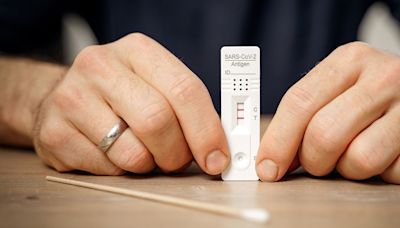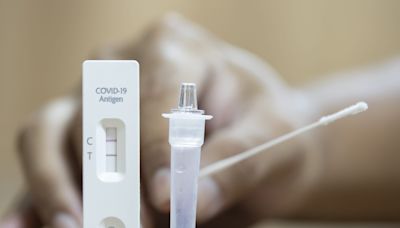Search results
Mar 15, 2024 · Find a list of COVID-19 symptoms, when to seek emergency medical attention, the difference between COVID-19 and flu, and print resources and videos. Symptoms, testing, what to do if sick, daily activities, and more.
Nov 10, 2023 · COVID-19 symptoms can range from mild to serious. Anyone can have symptoms at any intensity level. You don't have to have an underlying condition to develop severe symptoms. Common COVID-19...
Mar 27, 2024 · Symptoms. Typical COVID-19 symptoms often show up 2 to 14 days after contact with the virus. Symptoms can include: Dry cough. Shortness of breath. Loss of taste or smell. Extreme tiredness, called fatigue. Digestive symptoms such as upset stomach, vomiting or loose stools, called diarrhea. Pain, such as headaches and body or muscle aches. Fever ...
Apr 5, 2024 · Eat healthy foods. Get the rest you need. Try relaxation exercises. Keep up with hobbies you enjoy. Connect with others through phone or video calls. Also, if you're caring for someone with COVID-19, think about how it might affect your health.
Mar 1, 2024 · For most people, Covid symptoms can be managed at home and treated like any other respiratory illness, with an emphasis on rest and staying hydrated.
What are the symptoms of COVID-19? COVID-19 symptoms vary from person to person. In fact, some infected people don’t develop any symptoms (asymptomatic). In general, people with COVID-19 report some of the following symptoms: Fever or chills. Cough. Shortness of breath or difficulty breathing. Tiredness. Muscle or body aches. Headaches.
Nov 3, 2023 · The most common symptoms of COVID-19 are a fever, a cough and tiredness. But there are many other possible symptoms. Many people with COVID-19 may have mild illness and can be treated with supportive care. Currently, a few medicines have been approved to treat COVID-19. No cure is available for COVID-19.





